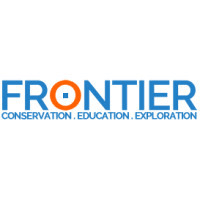Gap years are all too often seen as an extended holiday for lazy teenagers looking for a break from studying. But that’s just not true. Besides the fact that a well-structured gap year project or placement will give you hugely valuable, horizon-broadening experiences that will stay with you for the rest of your life, it could also give you the chance to take away tangible, highly-regarded qualifications to help you in your future career.
Here is Frontier’s guide to qualifications & getting the most out of your gap year:
TEFL
One of the most popular qualifications associated with gap years is the Teaching English as a Foreign Language certificate. Frontier offers all participants on its teaching projects the chance to obtain this certificate as an official record of their time and efforts. Once you’ve signed up you will be sent a TEFL pack and handbook with lots of lesson plans and ideas included. Volunteers need to complete 20 hours of teaching (for which we recommend a 4-week project) in order to qualify. In addition, a record of all teaching must be kept in log books during your teaching placement. This is then sent back to Frontier HQ for marking once you’ve finished, after which you will get receive your TEFL certificate in the post. Getting your hands on a TEFL certificate will not only look great on your CV, demonstrating your ability to work successfully in an unfamiliar and challenging environment, it will give you the basis to take your teaching further either into your career, or as an excellent means to travel and see more of the world.
BTEC
Gaining a BTEC qualification is a great way to get into the field of conservation. Having a relevant BTEC listed on your CV will help you stand out and show employers that your interest in the area is serious. Plus all of the work is done out on a project so will be much more bearable than having to sit through endless lectures.
FGASA
This, which stands for the Field Guide Association of South Africa, is a course which is designed to help you become a field guide. If you’ve always loved the idea of safaris what job could be better? Spend your days surrounded by the great African wildlife.
PADI
Frontier offer PADI qualifications for basic and open water advanced levels depending on how much time you spend on a project. Diving is an essential part of marine research but PADI qualifications will also be helpful if you see yourself becoming a scuba diving instructor in the future.
CoPE
If you decide after all that going to Uni is what you want to do, gaining the skills needed to complete the Certificate of Personal Effectiveness will earn you 70 UCAS points that can support your application. Frontier are registered with ASDAN to provide you with this great opportunity to get extra UCAS points whilst on a project.
